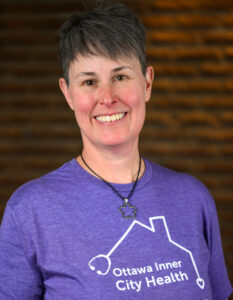Buy Clomid Online United Kingdom Visit Our Pharmacy ↓

Factors Influencing Clomid's Effectiveness in Couples
Since women with PCOS often face irregular ovulation due to hormone imbalances, particularly with elevated levels of androgens and insulin resistance, initiating a regular ovulatory cycle is a pivotal step towards achieving pregnancy. Research indicates that approximately 70-80% of women taking Clomid will ovulate, making it a strong option for those facing ovulatory issues. By increasing hormone production and regulating the ovulation process, Clomid can improve the chances of conception. Elevated FSH levels are pivotal because they directly stimulate the ovaries, prompting the growth and maturation of ovarian follicles that house the eggs. Various clinical studies and anecdotal evidence have highlighted success rates for ovulation typically around 70-90%, with pregnancy rates each cycle ranging from 15-50% depending on various factors like age, the cause of infertility, and concurrent infertility treatments. It's also important to seek support from loved ones or a therapist who specializes in infertility to have a safe space to share feelings and receive empathy. However, the success of Clomid can be influenced by several factors such as age, body weight, underlying medical conditions, and the duration of infertility.
Coping Strategies and Support
Clomid also has a higher chance of multiple births, which can increase the risk of complications during pregnancy and delivery. This process, known as ovulation, is crucial for fertility and pregnancy. Clomid works by blocking estrogen receptors in the brain, leading to increased production of follicle-stimulating hormone (FSH) and luteinizing hormone (LH). Many face the emotional weight of 'refill too soon' setbacks or side effects that challenge their resolve. This medication works by stimulating ovulation and increasing the chances of pregnancy. Many individuals and couples who have experienced the heartache of infertility often turn to Clomid as a potential solution. Rachel's story serves as a testament to the power of Clomid in helping women achieve their dreams of motherhood.
Understanding Clomid: What You Need to Know
One of the main dangers of Clomid is its potential to cause ovarian hyperstimulation syndrome (OHSS), a condition where the ovaries become swollen and painful. While mood swings and other emotional side effects are common during Clomid treatment, it's important to know when to seek help. Jessica and Mike had been trying to conceive for years without luck. Clomid is the brand name for Clomiphene Citrate, a selective estrogen receptor modulator (SERM). For couples struggling with infertility, taking Clomid can significantly increase the chances of conception. However, it's essential to understand how Clomid compares to other fertility treatments available. The culmination of a Clomid journey is a moment of profound joy and celebration for couples who have faced the trials of infertility.
Managing Expectations: the Reality Behind the Hype
The sense of uncertainty regarding its side effects in males often neglects the fact that, when administered under a healthcare provider's supervision, the drug has been observed to have minimal adverse effects. Some studies suggest that using Clomid alongside IVF can potentially improve success rates, while others have found no significant difference. With its ability to stimulate ovulation in women, Clomid has helped countless individuals overcome obstacles and achieve their dream of having a child. It belongs to a class of drugs known as selective estrogen receptor modulators (SERMs). By stimulating ovulation, clomid helps women who struggle with irregular menstrual cycles. While Clomid has been effective in treating infertility, its effectiveness varies depending on various factors, including age, medical history, and fertility concerns. Drinking plenty of water can help alleviate some of the side effects associated with Clomid.
Understanding the Dangers of Clomid
This compound medication works by interacting with estrogen receptors in the brain, particularly in the hypothalamus. There's also a risk of developing ovarian hyperstimulation syndrome (OHSS), a condition where the ovaries swell and become painful. Its mechanism of action is rather straightforward yet ingenious, tricking the body into ramping up the production of certain hormones essential for ovulation. If pregnancy does not occur, your healthcare provider may recommend repeating the Clomid cycle or exploring other fertility treatment options. From the initial heartbreak and frustration to the eventual triumph, each narrative demonstrates the unwavering determination and resilience required to overcome such hurdles.Through the use of Clomid, these individuals have been able to achieve the dream of motherhood. However, there are also some downsides to using Clomid. It is also crucial to manage expectations when it comes to success rates associated with this medication.
It's important to keep communication open with your partner and healthcare provider
Across forums and support groups, numerous testimonies highlight the transformative impact Clomid has had on men grappling with infertility. It's an oral medication deemed a first-line fertility treatment, especially for those diagnosed with polycystic ovary syndrome (PCOS) or other ovulatory disorders. The journey of infertility is often a difficult one, especially for couples who face the challenge of conceiving. Clomid is a fertility drug that can be prescribed to women who are having difficulty conceiving. One way to stay positive is to make sure you have a support system in place. The introduction of Clomid into this equation often adds intensity to this emotional spectrum. Additionally, lifestyle factors such as maintaining a healthy weight, avoiding smoking, and reducing stress can positively impact Clomid treatment outcomes.
Delving into the Side Effects of Clomid
The effectiveness of Clomid has turned it into a beacon of hope for many aspiring parents, carving out its niche as a primary treatment for infertility related to ovulatory dysfunction. After incorporating Clomid into her fertility treatment plan, she became pregnant and gave birth to a healthy baby. Secondly, tracking your ovulation cycle through methods like basal body temperature charting or ovulation predictor kits can help you time intercourse accurately. It is effective for people with polycystic ovary syndrome (PCOS), irregular periods, or unexplained infertility. By stimulating the pituitary gland to release more follicle-stimulating hormone (FSH) and luteinizing hormone (LH), Clomid enhances the growth and release of mature eggs from the ovaries. These side effects can vary from woman to woman and may include hot flashes, mood swings, nausea, headaches, and bloating. Clomid, a popular medication used to treat infertility, should always be administered under the guidance of a healthcare professional.
Clomid Is Unaffordable for Most Couples
Obtaining Clomid from reliable sources and seeking medical supervision greatly reduces the chances of complications and promotes a safer and more effective treatment journey. It's an oral medication that is commonly prescribed because it stimulates the ovaries to release eggs, making it a vital player in the arsenal against infertility. However, there is no clear evidence that one drug is more effective in achieving pregnancy than the other. It's important to note that while Clomid does heighten the possibility of twins, it doesn't guarantee multiple births; the majority of Clomid-assisted pregnancies result in singletons. It is important to follow the dosage instructions given by the healthcare provider since the effects and cycle length vary among individuals. Acupuncture and herbal remedies have also shown promise in improving fertility outcomes when used in combination with Clomid. Clomid is a potent drug that can help women ovulate and conceive, but it comes with its fair share of side effects.
Navigating Potential Side Effects of Clomid Treatment
Clomid is a medication used to stimulate ovulation in women experiencing infertility. Men considering Clomid must be under the careful supervision of their health care provider to monitor the drug's efficacy and adjust dosages as needed. If pregnancy does not occur, the doctor may recommend other fertility treatments, such as assisted reproductive technology (ART), intrauterine insemination (IUI), and in vitro fertilization (IVF). While infertility is a difficult experience, it is important to know that Clomid has helped countless women successfully conceive. Additionally, the anticipation of waiting to see if the medication has worked can add to the emotional stress. Though the financial and emotional toll was high, the personalized approach tailored to their specific situation led to the joyous birth of twins. Choosing Clomid for fertility can significantly impact one's lifestyle compared to other methods.
The Cost of Conception: Affordability and Insurance Factors
Additionally, it is important to note that not all women who take Clomid will experience multiple pregnancies. Tracking ovulation while taking Clomid can be akin to navigating with a reliable map through uncharted territory. Many women experience feelings of frustration, sadness, anxiety, and even anger. Clomiphene citrate, known by the brand name Clomid, is frequently prescribed to stimulate ovulation in women experiencing infertility. The use of Clomid has given hope to those struggling with infertility, showing that there are options and solutions available. It's also important to understand the potential side effects of clomid, such as hot flashes, mood swings, and bloating. One of its main functions is to help prevent a potential miscarriage by ensuring the proper development of the uterine lining.







